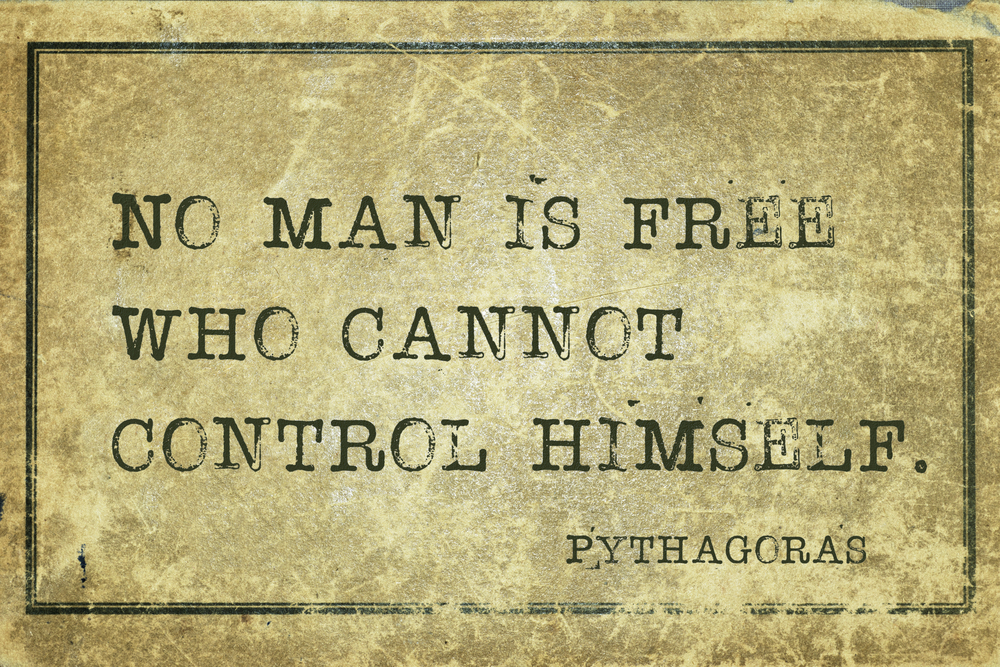
Yury Zap / Shutterstock.com
We are continuing our series on executive functioning (EF) skills. This article focuses on the EF skills of focus and self-control.
What do “focus” and “self-control” mean?
Focus is the ability to concentrate on one thing and ignore everything else (to an extent). Focus helps you stay on task or on topic, manage disinterest in what you’re working on, and screen out distractions.
Self-control, also called self-regulation, refers to one’s ability to set priorities and resist impulsive actions or responses unrelated to these priorities. It’s about being able to regulate yourself, through willpower or self-discipline, so you can accomplish your goals.
These skills work closely together, like many of the EF skills we’ve covered so far. Self-control gives you the ability to focus, and the better focused you are, the more self-control you will have.
Why are focus and self-control important?
Focus is linked to your ability to think, and without it, all aspects of your thinking will suffer. For example, if you’re faced with an issue, you will need to problem solve (a thinking skill) to come up with a solution. If you are unable to focus, you are less likely to come up with a reasonable solution to the issue, which could have a negative impact on your life as a whole. Focus increases your effectiveness because you are able to concentrate on the right things and limit outside distractions. It also increases the quality of your work and the likelihood that you will achieve your goals.
The ability to focus is also a main component of productivity, or the ability to get things done. The learning process, at all levels, requires focus (on the information, on the work, on the discussion, etc.). The better you can focus, the easier it is to retain learned information. The ability to focus also includes the ability to shift between tasks, and people who can shift easily but remain focused on the task at hand will accomplish more.
Self-controlled individuals function at their best because they are not driven by wants. For example, you might want to eat a pint of ice cream, but resist in an attempt to eat healthier. This is a sign that you are able to control yourself and not easily give in to the things you desire. Taking the time to look at the big picture and long-term outcome of your actions allows you to make better decisions. Only people with strong self-control can think toward the future instead of falling victim to instant gratification.
Self-control also helps people “bounce back” from a setback. If you are given a poor review at work, for example, self-control would prevent you from acting out (arguing, crying, blaming, becoming defensive, etc.) in a way that could be costly. People who can handle setbacks in a calm manner are viewed as more trustworthy and reliable.
How can I improve these skills?

canbedone / Shutterstock.com
Plan your schedule. Having a set plan for your day helps you know what you need to accomplish, and therefore what you need to focus on. Knowing where to put your focus is the first piece in being able to improve your attention toward tasks. So take control, make a list of everything you need to do, prioritize that list, and get working. Knowing what needs to be done and having a plan to complete your tasks will keep you more focused, productive, and in control.
Manage your time and energy. It’s an accepted fact that different people are more productive at different times of the day. Each person has their own peaks and lows in their levels of energy, so use that knowledge to accomplish tasks efficiently. Find the time of day when you work best, and make sure to complete the tasks that need the highest levels of focus then. If you’re like me, mornings are your most productive time, so read that chapter or write that paper before lunch! If you try to complete your tasks at a time when you have low energy levels, it will be much more difficult for you. Managing time and energy is essential to productivity. Figure out when your energy levels are highest (so you’re able to focus better) and build your daily schedule around that.
Limit multitasking. I know, I know. Multitasking is supposed to be a good thing—and it can be! But did you know that every time your email pings, your brain spends time switching focus to the email, then has to switch back to the original task? Multiply that a couple hundred times throughout the day, and you’ve lost valuable time and actually made it harder on yourself to get things done. The human brain can only concentrate on one thing at a time, so if you are listening to music while cleaning your room, your brain is really only concentrating on the cleaning or the music (though often music is just background noise). “Multitasking” is just switching from task to task, which can end up having a negative impact on your productivity. It’s much better to just focus on one task at a time and get the work done.
Limit distractions and temptations. Similar to multitasking, distractions and temptations steal your focus, attention, and self-control. How many times have you been in a sort of rhythm completing your work just to have your phone vibrate with a text? Should you ignore it? What if it’s important? You’ve already lost your focus on your task and are now paying attention to the text, which you know you’re going to give in and check. Try to limit these distractions and temptations from happening in the first place. You can leave your phone in another room, work in full-screen mode on your computer (to avoid the open Instagram tab), block ads on your internet browser (to avoid those blinking sidebar advertisements), and limit checking your email to break time. This allows you to regain control of situations that may otherwise control you.
Declutter. Clutter takes away your attention and ultimately your time. Physical clutter (a messy room or a disorganized desk) is a visual distraction that prevents you from focusing on the task at hand. Focus on organizing your workspace and you will better focus on your tasks. Your mind can also get cluttered; thinking about the phone call you need to return or the clothes you need dry cleaned, and wondering who starred in that movie are thoughts that clutter your mind. Try making lists. By getting it down on paper, you also can get it out of your head.
Take breaks. Think of your brain as a muscle and increasing your ability to focus as an exercise. You need to build up to an extended amount of focus, and you can do that by giving yourself breaks along the way. If you wish you could focus for 30 minutes (a big goal considering the average adult attention span is anywhere from 10 to 20 minutes), then start by focusing for five minutes and taking two-minute breaks. Gradually, you can increase the time as your brain gets stronger and better at this focus exercise.
Reward yourself. Rewards increase your motivation to complete tasks, which in turn gives you the motivation you need to focus on and begin tasks in the first place. If you know something good is coming (maybe a game night, take-out dinner, or a movie), you’re much more likely to focus in order to get the task done. So the next time you can’t focus on putting your laundry away, tell yourself that once it’s done you can Netflix and chill.
Forgive yourself and learn from your mistakes. When you fail (which everyone will at some point in their lives) it can really take over your ability to focus and distract you from the progress you’ve made toward a goal. Too much focus on negative energy is bad for productivity and your mental well-being. Instead of dwelling on a failure, try to figure out what caused it, learn your lesson, forgive yourself, and move on. Focus on moving forward rather than looking back.
All of these strategies and suggestions can help develop your ability to focus and increase your self-control. Any time you use your own willpower to overcome a setback, you are exercising self-control and self-regulation. Doing this will allow you to spend more time focusing on what needs to be done, and will result in higher productivity levels.
Join us again on Tuesday, November 7, when we will be talking about the executive functioning skills of working memory and attention.
-
Packing for a Cold Climate: What to Wear and Where to Shop
-
The Ultimate Car Emergency Kit for Students
-
Must-Have Skills for Living on Your Own the First Time
-
Executive Functioning Skills: Attention and Working Memory
-
Executive Functioning Skills: Organization and Time Management
-
Goal Setting: Why It’s Important and How to Succeed
-
How to Prepare for a Safe Road-Trip
-
Executive Functioning Skills: Emotional Control
-
The Relationship between Credit Card Debt and Credit Card Literacy
-
Executive Functioning Skills: Planning, Prioritizing, and Task Initiation

